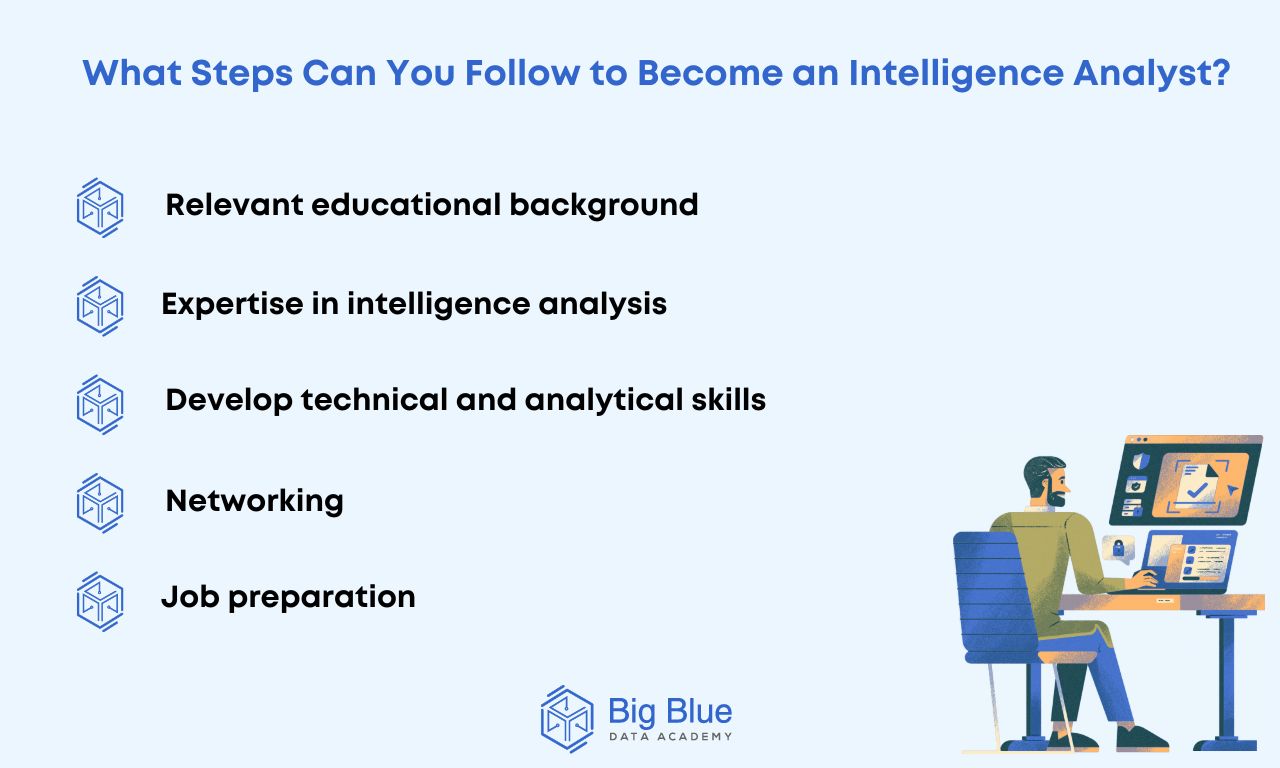How to Become an Intelligence Analyst in 2024
With the constant developments in the technological space and artificial intelligence, new professions are constantly emerging as the needs and requirements for data management and security are constantly increasing.
One of these professions that has made a strong appearance is that of the intelligence analyst.
So in today's article, we will see in detail:
- What is an intelligence analyst and what are their responsibilities?
- What steps can you follow to become an intelligence analyst?
- Before we dive in, let's start with a basic definition.
What is an Intelligence Analyst and What are Their Responsibilities?
An intelligence analyst is concerned with the collection, analysis, and evaluation of information to identify potential security threats and thereby develop and improve security and risk mitigation practices.
The work of an intelligence analyst is multifaceted and can be related to various areas such as corporate as well as national security.
It is a popular profession in cyberspace and one of its main goals is to help decision-makers make informed business decisions and mitigate risks as much as possible.
Although the responsibilities of an intelligence analyst vary depending on the organization they work for, their role broadly includes the following responsibilities:
- Creation of filtering programs to detect threats
- Generation of reports and proposals to improve and strengthen security
- Collection, monitoring, and data analysis to prevent a data breach
- Threat assessment
- Conducting risk assessments
Now that we've seen some basic things about the role of an intelligence analyst, let's see what steps you can take to become one yourself.
What Steps Can You Take to Become an Intelligence Analyst?
Below we have collected the basic steps for you to become an intelligence analyst.

Let's take a more detailed look at them.
Step #1: Relevant educational background
First, to become a successful intelligence analyst it is important to have a relevant educational background in the emerging field of data science, data analysis, or computer science.
To strengthen your skills, of course, it is also important to obtain certifications, stay up-to-date with seminars, and also to consider your participation in a data science bootcamp where you will develop both your hard skills and your soft skills.
Step #2: Expertise in intelligence analysis
The field of intelligence analysis offers many development opportunities and is a fairly broad field.
After you experiment with its various branches and examine what suits you and what you are most interested in focusing on and developing, you can specialize in a specific pillar of it such as cybersecurity, healthcare intelligence, environmental intelligence, etc.
Step #3: Develop technical and analytical skills
Continuing, try to constantly develop both your hard skills and your soft skills.
Focus on developing analytical and technical skills on:
- Database management
- Data mining and web scraping techniques
- Programming languages (e.g. Python)
- Statistical analysis
- Encryption and decryption tools
- Data visualization tools
- Machine Learning and AI
Step #4: Networking
Knowledge and specialization are solid bases for professional advancement, but it is not enough to invest in skills alone.
Equally important is networking with other people in the field to create connections and acquaintances with professionals and mentors.
Creating a professional profile on LinkedIn, and participating in industry forums and events, both online and offline, is a great way to get involved in the community, learn new things, and build a solid foundation for business relationships.
Step #5: Job preparation
As a final step, do thorough research on what are the prerequisites for the job you want to apply for to prepare properly and know some basic things about the position and the company you are interested in.
During your research, you can look for relevant interview questions that you can be asked about Data Science and AI, so that when it comes time to interview, you will do well, increasing your chances of success.
Ramping Up
We’ve seen what are the basic steps you can follow to become a successful intelligence analyst.
The field of intelligence analysis has very good salaries and many jobs waiting to be filled.
So, if you are intrigued and want to learn more about AI and data science in general, follow us and we’ll keep you updated with more educational articles!


.jpg)